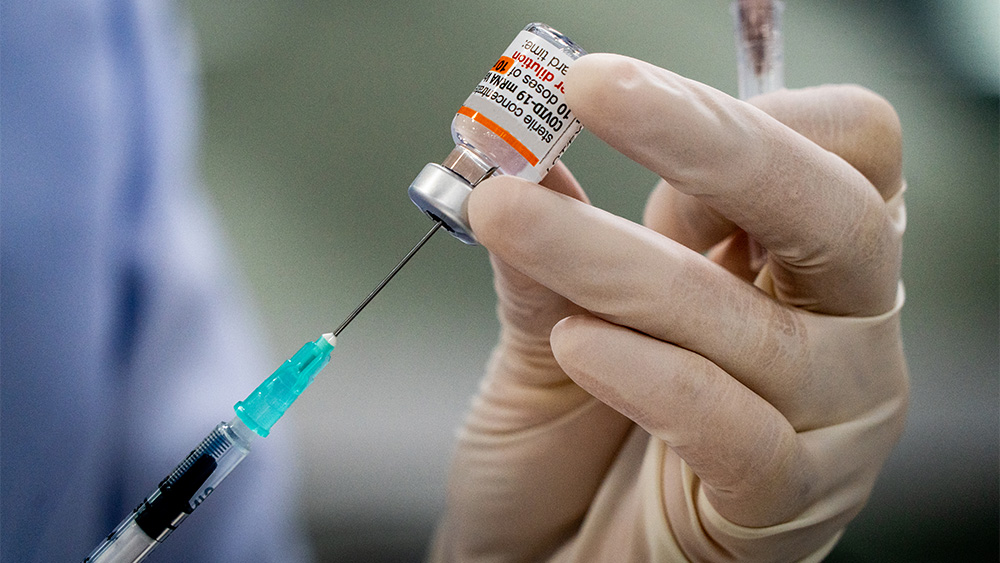
People who had contracted COVID-19 before vaccination had a weaker immune response to the vaccine than people who were never infected.

People who had contracted COVID-19 before vaccination had a weaker immune response to the vaccine than people who were never infected.
What you need to know
COVID-19 vaccines help the body fight SARS-CoV-2, the virus that causes COVID-19. Since many people had COVID-19 before vaccination, researchers wanted to learn how a person’s immune response to the vaccine was affected if they had previously been infected with SARS-CoV-2.
In a study supported by the National Institute of Allergy and Infectious Diseases (NIAID), researchers found that people who had contracted COVID-19 before vaccination had a weaker immune response to the vaccine than people who were never infected. Although vaccination does provide additional protection against SARS-CoV-2 infection and reinfection, these findings suggest that COVID-19 can cause long-term damage to the immune system and make someone less able to fight off reinfection.
What did the researchers do?
T cells are an important part of the immune system. mRNA COVID-19 vaccines give these cells information about SARS-CoV-2 so that they can attack the virus and any infected cells to keep the infection from spreading. T cells can also alert B cells, which produce antibodies against the virus.
Researchers wanted to study how T cells respond to the vaccine and how previous SARS-CoV-2 infection affects that response. The researchers compared T-cell activity in three groups of volunteers:
-
People who did not have COVID-19 before vaccination and were fully vaccinated
-
People who had contracted COVID-19 before vaccination and were fully vaccinated
-
People who had contracted COVID-19 and had never been vaccinated
The vaccinated groups had received two doses of the Pfizer-BioNTech COVID-19 vaccine. The researchers drew blood from each group and looked for T cells that responded to SARS-CoV-2.
The researchers found that vaccinated people with no prior case of COVID-19 had the strongest immune response. These participants had more T cells, especially CD8+ T cells, and the cells fought infection better than the T cells of people in the other groups. These cells also released signals to summon B cells that protect against future infection.
People who were vaccinated but had contracted COVID-19 before their vaccination had a lower number of CD8+ T cells, and people who had never been vaccinated had the lowest amount. The T cells in those two groups were also less able to recruit B cells to fight future infections.
Why is this research important?
These findings suggest that COVID-19 causes long-term damage to the immune system, even after recovery and vaccination against COVID-19. Future research can examine how to strengthen T cells to better protect people who have previously gotten sick.
However, no matter whether a person is vaccinated before or after they get COVID-19, vaccination against future cases of COVID-19 will still provoke a stronger immune response than the response of unvaccinated people. To stay as protected as possible against COVID-19, the Centers for Disease Control and Prevention recommends that everyone age 6 months and older stay up to date on their vaccines.
Where can I go to learn more?
-
NIAID shares information on the immune system and how it fights infection.
SARS-CoV-2 infection weakens immune-cell response to vaccination
-
A news release from NIH shares additional information about this study.
Bivalent Boosters Offer Better Protection Against Omicron
-
Bivalent COVID-19 boosters are more effective than the original boosters at preventing severe COVID-19 from the Omicron variant of SARS-CoV-2.
Sources
Gao, F., Mallajoysula, V., Arunachalam, P. S., van der Ploeg, K., Manohar, M., Röltgen, K., Yang, F., Wirz, O., Hoh, R., Haraguchi, E., Lee, J.-Y., Willis, R., Ramachandiran, V., Li, J., Kathuria, K. R., Li, C., Lee, A. S., Shah, M. M., Sindher, S. B., Gonzalez, J., … & Davis, M. M. (2023). Spheromers reveal robust T cell responses to the Pfizer/BioNTech vaccine and attenuated peripheral CD8+ T cell responses post SARS-CoV-2 infection. Immunity, 56(4), 864–878.e4. https://doi.org/10.1016/j.immuni.2023.03.005

News and Stories
Read stories about the efforts underway to prevent, detect, and treat COVID-19 and its effects on our health.
 An official website of the United States government
An official website of the United States government

